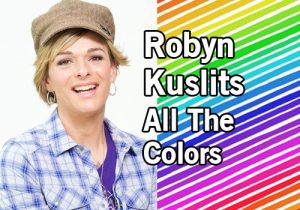Words not said can have lasting impact on LGBTQ+ kids
 CONTRA COSTA COUNTY, CA (Apr. 20, 2022) — When I was in the sixth grade, a classmate called me gay.
CONTRA COSTA COUNTY, CA (Apr. 20, 2022) — When I was in the sixth grade, a classmate called me gay.
At this time in the mid-’90s, people would often say “that’s gay” when something was bad or wrong. I did not know what being gay meant, only that it was bad and wrong and something I definitely did not want to be.
I remember feeling very angry and upset, and I told a teacher about it. The teacher spoke to my classmate about how inappropriate it was to call me gay, and that student refrained from calling me gay again.
While I am grateful that the teacher addressed the situation on my behalf, the teacher failed to mention to me or my classmate that there was nothing bad or wrong about being gay.
A normal expression of humanity
I often wonder how different my adolescence would have been had someone ever mentioned to me that being gay was not a bad thing, just a normal expression of humanity that I now understand today. Would I have felt comfortable telling my parents that I was questioning my gender? Would I have confided in friends that I felt attractions to all genders?
I will never know what could have been, but I do know I wrestled with my feelings about gender and sexuality alone for many years because I thought they were bad and needed to be hidden and repressed.
As we marked Transgender Day of Visibility last month, many states across the country have passed or are considering legislation inhibiting the rights of LGBTQ+ people. Many of these bills specifically target LGBTQ+ children, whether it be criminalizing transgender health care for young people, preventing transgender girls from competing on school sports teams or banning the mention of sexuality and gender identity in schools.
While legislation targeting our community is nothing new (Prop 8. comes to mind), this current legislation is particularly harmful because it tells our LGBTQ+ young people that they are bad and wrong.
Hope persists
The brain internalizes these messages, causing shame. This shame poses a tremendous barrier to being able to love oneself and others, and it can sometimes lead to death. A 2019 report from the Centers for Disease Control and Prevention shared that 34.6% of transgender youth attempted suicide in the previous year. It is very likely these numbers have risen in the last couple years as debates about the basic rights of transgender people are headlined regularly in the media.
These sad statistics underscore the inherent cruelty of the governments passing these laws, yet they push forward knowing exactly the harm they are causing.
Fortunately, hope persists. Rather than just condemning the actions of problematic state legislatures, leaders across the country are speaking up for LGBTQ+ people. Cities are recognizing LGBTQ+ Pride Month and flying the Pride Flag above their city halls. School boards are providing trainings for school staff on how to be affirming of LGBTQ+ young people. States are passing legislation banning the hideous practice of conversion therapy and protecting LGBTQ+ people from discrimination.
‘You’re not alone’
The president of the United States spoke directly to transgender people commemorating Transgender Day of Visibility, stating “You’re not alone. You’re so brave. You belong. And we have your back.”
My 11-year-old self will never know what it would have been like hearing the president speak those words. Thankfully, today’s 11-year-olds will know.
I hope all LGBTQ+ children get to hear that they are loved, they are beautiful, they are brave, they belong, and they deserve all of the rights and privileges that come with being an equal citizen of this planet.
Words are so powerful, and affirmations can make a tremendous difference in the lives of young people as they develop acceptance of themselves and others. We can all do our part to end the shame and stigma by affirming our young LGBTQ+ people.
Together, we can get through these difficult times with love and pride.
Robyn Kuslits is a genderqueer transwoman who currently serves as board president of Rainbow Community Center of Contra Costa County. Send questions and comments to robyn.kuslits@rainbowcc.org.
